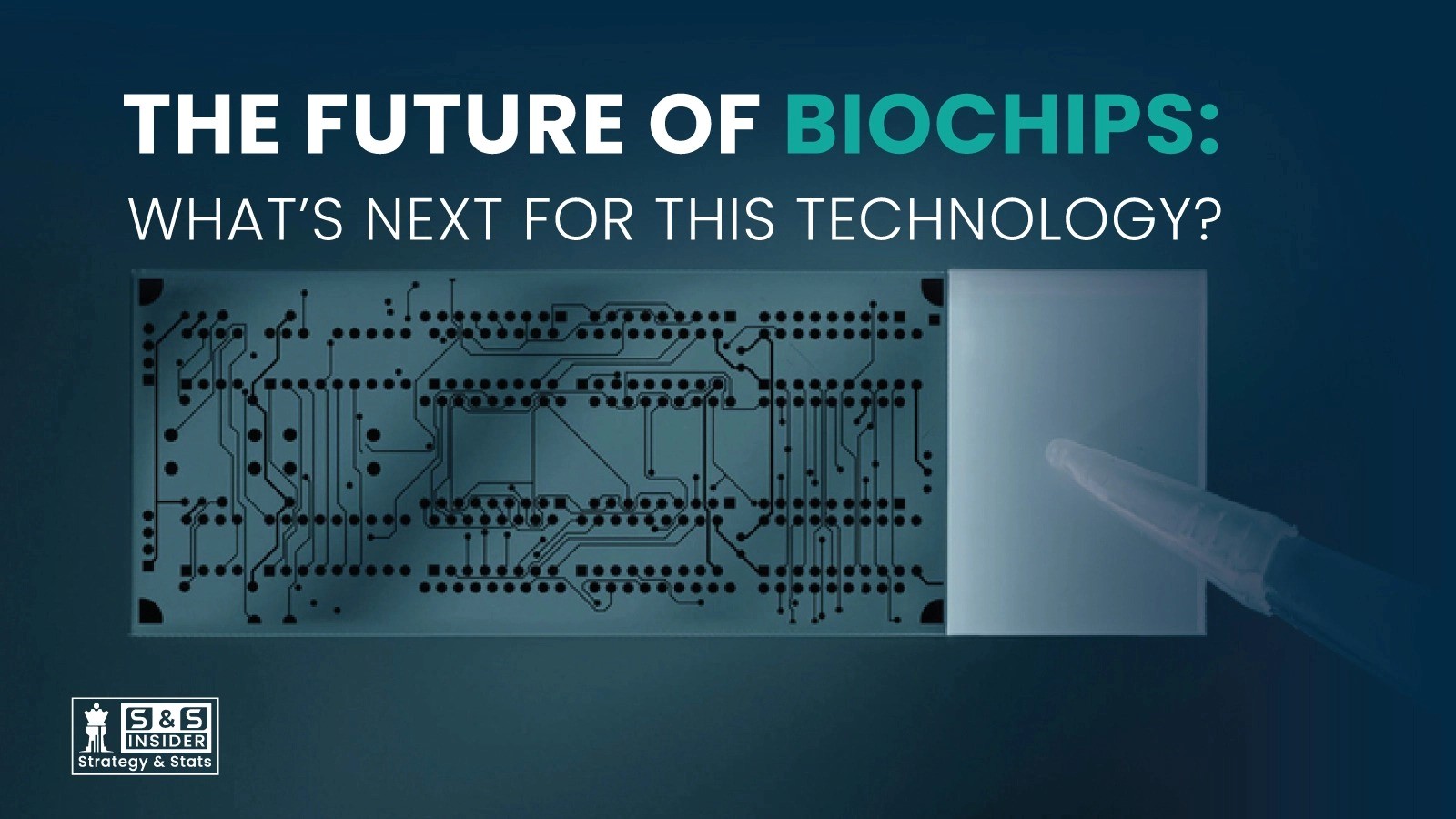
Biochips are reshaping healthcare! As the market grows from $10B to $29B, the next big breakthrough could be yours—will you be in the loop?
Biochips hold great promise as new technologies in healthcare, finding applications in diagnosing diseases and offering treatment. The biochip market is projected to boom as the sector continues to benefit from advancements in nanotechnology and molecular diagnostics. In terms of market valuation, the market was valued at USD 10.09 billion in 2023, with a projection that it will compound at a growth rate of 13.29%, reaching a value of USD 29.40 billion by 2032. But what are the prospects for biochips in the future, and what are the dynamics driving their growth?
The increasing need for medical biochips is fueled by the rising demand for personalized medicine and point-of-care testing. These applications make use of biochips, allowing for speedy and accurate diagnostic tests in a short time. Biochips make it possible to test for proteins or other markers related to diseases such as cancer with minimal samples. This reduces the turnaround time for diagnosis and improves treatment outcomes, as is the case with personalized medicine.
There are also expectations for the further adoption of the biochip in molecular diagnostics. This is primarily the reason DNA chips, that constituted 38% of the biochip market in 2023, have gained popularity in genomics and genetic testing. These chips facilitate the examination of thousands of DNA strands at the same time, thus helping to identify numerical changes in genes or the overexpression of genes in a variety of cellular states.
Aside from diagnostics, biochips are also pivotal in the drug design process. The incorporation of biochips for high - throughput screening in pharmaceutical research has become a necessity since it allows testing of a high number of compounds at once. This helps in finding new drug candidate molecules faster thus reducing the research and development processes in both time and costs.
The biochip market’s drug development application segment held a market share of 41% in 2023 and is likely to retain this leadership. Biochips let researchers investigate the interactions of complex biological systems and various molecules which are important in the creation of targeted treatments. This is of particular importance in oncological studies, where biochips are actively used for tumor profiling, biomarker discovery, and therapy prediction, and is in line with the growing trend of precision medicine.
There are other perspectives of biochips as well. One such use has been in the area of carrying out allergy tests. Recipients of edible products containing allergens, or pollens, have for long years now been beset by adverse effects which range from moderate to life threatening. Devices for carrying out allergy tests, like the ones manufactured by Toray Industries in 2021, are making history by permitting many allergies to be tested simultaneously. This has been made possible by the use of micro-sieving technology where allergy specific immunoglobulin E (IgE) antibodies can be isolated from very small blood samples.
With the growing nature of research in studies of allergies, the market for biochips in this field is likely to increase. Because biochips can be used to get fast and accurate results from a few samples, they are ideal for clinicians and scientists dealing with treatment and diagnosis of allergies.
Due to the use of nanotechnology in biochip designs, smaller and more accurate biochips have been extensively produced. The other benefit of nanotechnology includes the reduction of the size of the biochips without interfering with their efficiency and efficiency in their use in conventional health care systems. Perhaps one of the future applications might be embedding the biochips in the wearable gadgets and providing monitor of health parameters continuously and diagnosis when needed. Such integration has the potential to change the domain of acute preventive care along with chronic disease management.
As beneficial as biochips may be, there are several challenges hindering their widespread use. Although they offer efficient and marketable solutions, the sophisticated manufacturing processes required to produce biochips can limit market growth, particularly in regions with inadequate healthcare infrastructure. Additionally, new biochip technologies often face long delays before reaching the market, as they require regulatory approval—a process that can take considerable time, with no room for shortcuts.
However, these challenges also present opportunities. The integration of biochips with wearable devices for continuous health monitoring is just one example of how this technology could evolve.
As biochip technology continues to evolve, we can expect several exciting developments in the near future. First, the continued integration of biochips into wearable devices will enable real-time health monitoring and early disease detection. This could have a transformative impact on preventive care, allowing individuals to manage chronic conditions more effectively.
Second, advancements in DNA chip technology will likely lead to further breakthroughs in genomics and personalized medicine. As researchers gain a deeper understanding of the genetic basis of diseases, DNA chips will become increasingly important for developing targeted therapies and diagnostic tools.
Finally, the expansion of biochip applications beyond healthcare into sectors such as environmental monitoring and food safety will open up new growth opportunities for the industry. The ability to detect toxins, pathogens, and pollutants at a molecular level could revolutionize the way we approach public health and safety. Connect with us now and get a detailed report!
Hi! Click one of our member below to chat on Phone